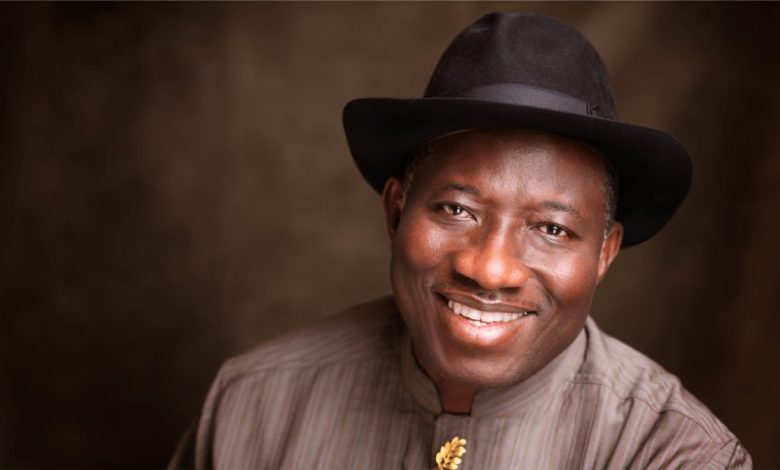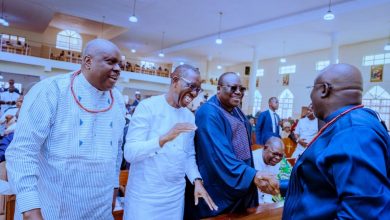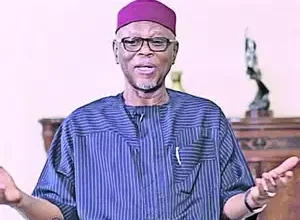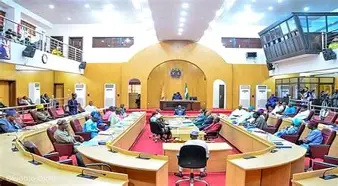Politics
Former President Jonathan calls for electoral reforms in Nigeria

Former President Goodluck Jonathan has emphasised the need for comprehensive reforms in Nigeria’s electoral system to strengthen democracy, promote accountability, and ensure credible elections.
Dr. Jonathan highlighted significant challenges facing the electoral system despite progress since the country’s return to democracy in 1999.
Jonathan, represented by the Executive Director of Goodluck Jonathan Foundation, Ms Ann Iyonu, said this during a crucial dialogue and launching of the National Action Plan for Electoral Reform in Nigeria organised by the Executive Director of Abuja School of Social and Political Thought, Dr. Sam Amadi.
The former Bayelsa State governor suggested creating an independent office to regulate party operations, promote internal democracy, and enforce party discipline.
He further said that such office would have the power to declare vacant seats of defecting lawmakers, affirming the principle that electoral mandates belong to the people.
Jonathan also proposed an independent screening and nomination mechanism comprising representatives from the judiciary, civil society, academia, and professional bodies to vet and recommend qualified candidates for the position.
Jonathan emphasised the need to conclude all post-election litigations before swearing-in elected officials to prevent confusion and undermine governance.
He said reforms would help reflect the will of the people and uphold principles of justice, accountability, and inclusion.
By ensuring credible elections and accountable leadership, reforms would strengthen Nigeria’s democratic institutions.
Timely resolution of electoral disputes would protect citizens’ rights and prevent justice delayed being justice denied.
Jonathan commanded Amadi saying the work he is doing was not only critical for the health of the nation’s political system, but also a patriotic service to Nigeria and future generations.
“Nigeria has made notable progress since our return to democratic rule, but we must acknowledge that our electoral system still faces significant challenges.
”If we are truly committed to democracy, we must be bold enough to reform the process to better reflect the will of the people and the principles of justice, accountability, and inclusion.
“Without prejudice to what is contained in your report, I wish to put forward some ideas, I believe, can help deepen our democratic processes and safeguard the legitimacy of our elections.
“First, we must address the growing crisis of political party indiscipline. Parties are the foundation of any democracy, but in our context, they have become vulnerable to opportunism and instability.
“We have seen a disturbing rise in the practice of cross-carpeting, elected officials defecting from the parties under which they were elected, often without ideological justification or accountability to the electorate.
“To remedy this, we should strongly consider the establishment of an independent Office of the Registrar of Political Parties, charged with regulating party operations, promoting internal democracy, and enforcing party discipline.
“This is a proposal I had put forward on another occasion, but I believe it is good to re-emphasise it at a forum like this.
‘:During my assignment as an election observer in the last decade, I have seen this work effectively in some countries including Kenya and Malawi.
“Crucially, the office should have the power to declare the seat of any defector vacant.
”This reform would affirm the principle that the electoral mandate belongs to the people and not to individual ambition:’ he said.
”The credibility of elections rests heavily on the neutrality and competence of the Independent National Electoral Commission (INEC).
”So many questions have continued to be raised on the propriety of the process of appointing the INEC Chairman.
“Many countries in the course of their democratic journey had found the need to reform the process.
‘: I believe that Nigeria can also improve the process by establishing an independent screening and nomination mechanism, comprising representatives from the judiciary, civil society, academia, and professional bodies.
“This body would be tasked with vetting and recommending a shortlist of qualified candidates, from which the President may appoint the Chairman.
“This reform will reduce perceptions of bias, promote public trust in INEC, and enhance the legitimacy of its decisions.”
“Another reform that I believe is critical is the need to conclude all post-election litigations, especially those relating to the final outcomes of elections, before the swearing-in of elected officials.
“It creates confusion and undermines governance when candidates with unresolved election cases assume office, only to later be removed by the courts.
”This undermines the authority of the office and the credibility of the electoral process.
“We must adopt a framework that compels the timely resolution of electoral disputes, possibly with specially designated election tribunals and timelines that align with the electoral calendar.
”Justice delayed in elections is justice denied, not just for the candidates, but for the electorate.
“Democracy is not just about casting ballots; it is about building institutions, promoting accountability, and protecting the dignity of the citizen.
“The reforms we are discussing today are not partisan, they are patriotic. They are not meant to benefit any one group, but to strengthen Nigeria.
”Let us confront our democratic weaknesses with honesty, and reform our system with courage.
“Let us continue to work together to build a Nigeria where elections are credible, leaders are accountable, and democracy truly delivers for the people.”
Also, Dr. Sam Amadi, Executive Director of the Abuja School of Social and Political Thought, proposed comprehensive electoral law reforms, focusing on INEC appointments, election-day processes, and dispute resolution mechanisms.
Stakeholders including the Nigerian Bar Association and civil society organisations, called for urgent reforms to guarantee free, fair, and credible elections in 2027.



